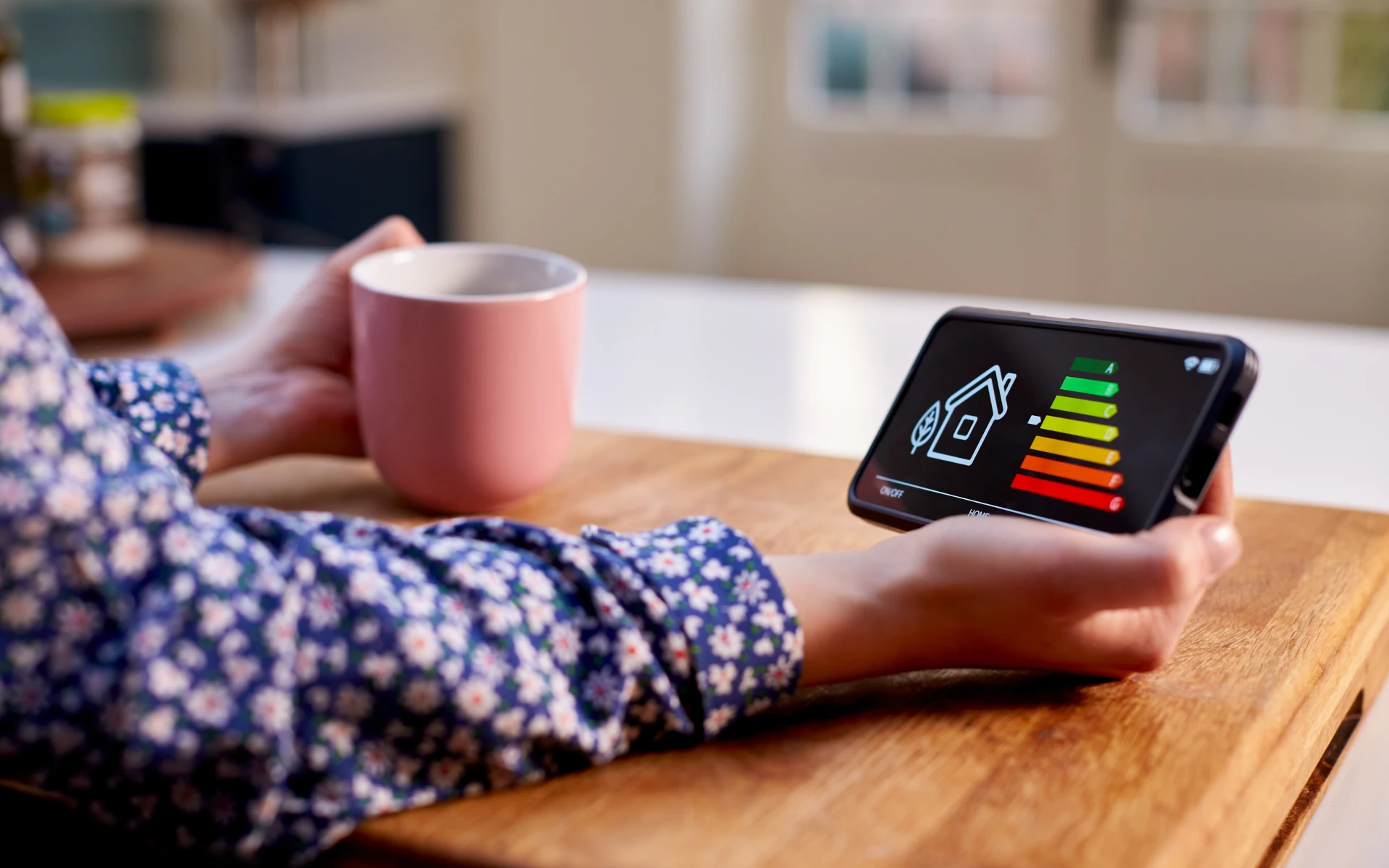Key takeaways:
- Many solar panel and battery owners still face power overloads and limited energy control.
- Smart load management gives you real-time control over your home’s power, helping you avoid high bills and system failures.
- These systems pair with solar, battery backup, and EV chargers to protect your panel and maximize your savings.
Adding battery backup to your solar panels helps you maximize savings while giving you more control over your energy consumption. However, it doesn’t mean you’re free from challenges like overloaded panels, power outages, or high utility bills. With smart load management, you can monitor and manage your home’s power demand in real time, avoid overloads, and prioritize essential circuits like refrigerators, medical devices, or HVAC systems. This upgrade ensures you get more out of your solar investment while keeping your household running smoothly.
Here’s how smart load management gives you access to true home energy control.
What Is Smart Load Management?
Smart load management brings automated and adaptive control to your home. These systems control how and when your electrical loads get power without you having to flip a single breaker.
Here’s how it works:
- Smart load management systems connect to your panel or use special devices like smart breakers, subpanels, or controllers.
- They work with solar panels, battery backups, generators, and even EV chargers.
- The system monitors your current energy use and available capacity. If you’re drawing too much, it automatically puts non-essential circuits (such as pool pumps or laundry) on pause.
- Essential circuits, like your refrigerator, HVAC, and lighting, remain powered.
- Your system can also alternate between power from the grid and stored electricity from your battery. You can program it to switch to battery power when it detects an outage or during peak times when electricity prices are higher.
- Many smart load management solutions offer an easy-to-use app that allows you to monitor and adjust your power use in real time.
One key advantage of this technology is that you can adapt your power usage based on current conditions. Imagine your energy monitoring system notices your battery dipping to 50% during a storm outage. Rather than powering your entire home as normal, your smart load management system will turn off the circuits you don’t need and send power to lighting and essential appliances. This keeps your essentials running longer and prevents the battery from draining too fast.
Why Load Management Matters More in 2025
If you’re using more energy in 2025, you’re not alone. Modern households have more appliances than ever, and old panels sometimes struggle to keep up. Plus, new technologies like solar, battery storage, and at-home EV charging are putting additional pressure on old electrical infrastructures.
Load management is becoming more popular because:
- Most electrical panels were never designed for EV chargers and solar inverters.
- The National Electrical Code (NEC) now recommends stricter load calculations and monitoring.
- Upgrading to a 200-amp panel is expensive, and not all properties qualify for a simple upgrade.
- Battery storage is appealing, but only if you use your available power wisely.
Smart load management is a possible solution to these issues. It lets you delay or avoid an expensive panel upgrade by only powering what your current panel can safely handle. It also makes solar and battery backup investments work harder by reducing energy waste and extending battery run time. If you live in an area with time-of-use pricing, smart load management is great for letting you take advantage of low electricity prices, switching to your battery backup when pricing goes up, or cutting power to non-essential circuits during these peak times.
How Smart Load Management Works with Solar and Battery Backup
If you have a solar and battery setup, you probably use the energy generated by your panels to charge your battery for a full or partial off-grid energy solution. Imagine the grid goes down because of a bad summer storm. Your battery is full, but without smart load management, it will power all your circuits, including your HVAC, pool, laundry room, kitchen, and more. This will drain your battery in no time.
With a smart load management system, here’s what happens instead:
- The system senses your battery dropping to 50%.
- It keeps power flowing to the fridge, certain lights, and your WiFi router.
- Pool pump, laundry, and water heater circuits are shut off temporarily.
- If your utility offers time-of-use rates, it can also shift high-power uses (like an EV charger) to the cheapest hours.
- When the power returns or the sun shines again, everything comes back online.
In this example, smart load management helps you get more out of your solar and battery setup, and it also keeps you safe during power outages.
What’s the Installation Process Like for Smart Load Management Solutions?
A local electrician will conduct a load analysis to better understand your power needs. They’ll also discuss challenges unique to your area, such as an aging grid, rolling blackouts, or high energy prices.
Next, they’ll design a custom smart load management solution. If you’re ready for a major upgrade, you can look into replacing your old panel with a smart model combined with circuit-level controls to fully manage your electricity usage. If you’re on a budget, you can add smart load management to your home with a subpanel that controls an EV charger or another power-hungry circuit.
Want Smarter Control Over Your Home’s Power?
Smart load management makes your electrical infrastructure efficient and reliable. Our team at JAXSL can help prevent overloads, extend battery life, and avoid costly electrical upgrades.
We specialize in smart load management solutions and offer full system design and installation services. As a team of certified electricians, you can count on us to follow all the local rules for electrical upgrades while designing a system adapted to your unique needs.
Are you ready to upgrade your home with smart load management? Call JAXSL at 844-452-9538 to schedule a load analysis and discuss your options.
FAQ
What is smart load management?
Smart load management solutions control where electricity goes in your home. Depending on your configuration, you can prioritize important circuits or cut power to non-essential circuits on a schedule.
How does smart load management work with solar and battery systems?
Adding smart load management to solar panels and battery solutions is a popular upgrade. This technology helps you get more out of your investment by controlling how you use battery power.
Do I need to replace my electrical panel to use smart load management?
It depends. You can benefit from replacing your old panel with a smart model that supports load management, but you can also keep your current panel and add a smaller load management device.
How does load management help during an outage?
When the power goes out, your smart load management system will automatically switch to battery power. It will also limit how much electricity you can draw from your battery and prioritize essential circuits so your battery power lasts longer.

